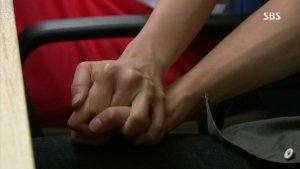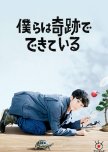
In turns funny, heartfelt, heartwarming and bittersweet, this was a drama which will leave you with feelings of contentness and peace.
A major theme of the drama was kindness and acceptance of oneself and others; after all, we could be no one else but ourselves. Many other things to marvel at and learn of, as well.
A must watch! (For those who are looking for a small piece of warmth and nuggets of wisdom).
Was this review helpful to you?
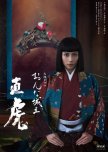
A small clan based in Ii Valley, where Hamamatsu City is now. Hamamatsu is a city in Shizuoka prefecture, Kanto region. The Ii(s) are now based in Saga prefecture, where Ii Naomasa was relocated to when the Tokugawa Shogunate was established.
The Ii(s) as a samurai clan had a much longer traceable history than most of the major clans - the Takeda, Hojo, Matsudaira/Tokugawa etc - around them, with some estimates giving them a 1000 year old lineage. At the least, their ancestry could be traced back to the Kamakura era.
Two of the most famous Ii(s) included Ii Naomasa and Ii Naosuke.
Ii Naomasa was one of the Four Heavenly Generals under Tokugawa Ieyasu, and played a prominent role in the founding of the Tokugawa Shogunate and the revival of the Ii clan.
Naosuke was one of the foremost conservative influence during the ending period of the Shogunate, and his assassination paved the way for the establishment of the Meiji era under a new modernist regime.
As an historical person, Ii Naotora was shrouded in mystery and many uncertainties. Some historians assert that she was actually a man, and that Naotora and Naomasa’s adoptive mother were not the same person.
The Story
If you are looking for battle scenes and samurai fighting, you will be sorely disappointed. As the synopsis stated, the story started at a point of crisis for the Ii clan. Their continued survival was highly questionable, and the story reflected the uncertainties and helplessness of a clan on the verge of collapse.
What this drama did very well, and unlike most other Taigas before it - with the exception of Sanadamaru before it - was the focus on the small scale struggles and daily survival efforts of peripheral clans and the people in them. Hence, there are more villagers with names here than you will ever see in many of the Taigas from the last decade. The intimate and humanistic aspects of the drama were what piqued my interest in the first place. While always interesting and grandiose, the focus on all those major personalities got tiring after a while.
Here, we are reminded that ideally, all those political and armed struggles were meant to be for a greater purpose, to bring about peace and stability, not for the sole purpose of personal aggrandizement and megalomaniac-ambition.
The dialogue and messages in this drama were well-written and most often thought-provoking, if somewhat idealized.
In turns comical and heartwarming, it was also mostly just tear-inducing.
A story full of love - in all its myriad representations - and of stubborn people (or if you prefer, persistent and determined).
Characters
If there is to be only one reason to watch this drama, it would be for the character of Ono-Tajimanokami-Masatsugu.
He was a character that encompassed many virtues and ideals in the form of a man, but above all, it was love and devotion. Love for a woman, the family, friends, the homeland, the clan, of honour, duty, sacrifice and peace.
(And if you are a shipper and have the tendency to have Second-Male Lead-Syndrome, Ono Masatsugu will be the ultimate candidate to break your heart and provide tonnes of angst and ache).
On reflection - since there have been many, many fantastic second male lead characters before - what truly made Ono Masatsugu stood out from the fray, besides some good - if spotty - writing, was the fact that in the hands of Takahashi Issei, he was elevated to a sublime level of intensely stoic devotion and loving magnanimity. An unsurpassed potent combination.
Besides Masatsugu, I would dare venture that there are many lovable and admirable characters in this show. Whether you agree with their motivations or not, no one failed to live up to their ideals or limitations, of which there were numerous. While a weird way to state, whether the goal was mediocrity or self-sacrifice, most everybody tried their best.
Cast/Acting
Generally, the casting and acting were solid and competent, befitting a Taiga. Personally, however, I did not find all acting equally appealing. I did not particularly enjoy Shibasaki or Suda’s acting, as I thought they overexpressed at some parts. Still, they did very well in their roles.
Most of the secondary characters had very competent actors and actresses at the helm, and that had made for a marvelous watch.
Last but not least, another note on Takahashi Issei as Ono Masatsugu. His role here captured my imagination and made me a fan, so while biased, I have to once again comment on his amazing performance. He turned what was a run-of-the-mill-character into THE character to pay attention to. His presence made what was an average Taiga into one that engrossed the hearts and minds of fans. While not an especially popular Taiga (ratings were quite mediocre), Naotora might well turn into a cult-drama for the way it has engaged the emotions of fans, and Masatsugu had been one of the main reasons for this phenomena.
Music/Composition
A gorgeous soundtrack and background music accompanied this show and raised the level of emoting for the whole series. Simply breathtaking music.
Overall
While I have had problems with certain aspects of the development of the storyline and the relationships they portrayed, I could not complain that it was not already written into the story from the beginning (unlike some other stories/shows), though due to various factors, interpretations for the story deviated somewhat from the intentions of the scriptwriter. This is mostly an issue of personal expectations and subjective interpretation.
The story, however, devolved into semi-farcical comedy and ridiculousness at certain portions of the second half, and this detracted somewhat from the overall quality of the show.
While no-where-near-perfection, this series has been an interesting glimpse into a lesser known clan and world of the Sengoku era.
Was this review helpful to you?
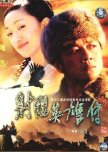
Gritty and epic
This version, out of the numerous adaptations of the same Jin Yong saga, the “Legend of the Condor Heroes”, was the least popular amongst those made in the last 30 years.However, this review was written with the hope that this version will receive more positive attention, as it was certainly deserving of it, being an earnestly and beautifully produced, directed and performed show which did the fantastic saga justice.
Plot:
Story-wise, this was one of the most faithful to the saga in the novels. It was also relatively well-executed. Hence, the plot, story and execution were the strengths of this adaptation. However, it was not without flaws as the show focused on certain parts of the story more than others, resulting in an imbalance (as per the story in the novels). If one was not too nit-picky, that was still one shortcoming which can be overlooked.
Particularly worthy of note was the period while the story was based in Mongolia. There was more emphasis on this phase of Guo Jing’s journey in this version than there were in the others, and the care taken were admirable. If there was an absolute I dare assert with regard to the adaptations, it was that the 2003 version had the best Mongolia-based-phase out of all existing adaptations, no ifs-or-buts about it. It was truly fantastic, even with the inevitable flaws.
Cast/Acting:
There were many criticisms and controversy with regard to the casting, especially for the main leads. However, while everybody had their own preferences for actors/actresses and their interpretations of the characters, personally, I found the acting and interpretations to be solidly competent and robustly interesting. I love the Huang Rong and Guo Jing here. Both the portrayals by Zhou Xun and Li Ya Peng were impressionable and highly memorable. They left their own marks on these classic characters.
The only main issue I had was with Yang Kang and his actor, whom I thought overacted most times. Still, he did well, just not really my cup-of-yes. The rest of the cast also did excellently and left a deep impression. I particularly appreciated the presence and gravitas some of the more veteran actors and actresses brought to the secondary characters, especially the more major characters of the wuxia masters.
Action sequences/CGI:
While there were some annoying overuse of CGI, overall, I thought the usage was appropriate for the scenes they were employed in, and did not unnecessarily overshadow the more traditional kungfu moves during the same action sequences.
Cinematography:
The cinematography here was simply breathtaking, with shooting locations spanning the breadth of China from the north to the south, giving a sense of deep realism to this version that moved me. In tandem with that touch of realism, the framing used also brought out the ethereal aesthetic of a black and white ink painting in many scenes, lending many scenes a sense of immersive beauty.
This version used a palette of muted and darker colours for its scenes, lending a dirtier, grittier and more epic feel to the whole show, which really matched the wuxia genre, I thought. Not only that, it lent a tinge of tragedy and bittersweetness throughout. While the story was a somewhat positive exposition on the journey of a patriot-hero, it was also a story littered with deaths and tragedies, and I applauded the show for not shying away from this sense of sadness through its visual presentation.
Costumes:
The costumes and set pieces utilised here could be considered simple and drab, but were actually custom made for the show based on historical records and the novels, and here too, the effort to be true to its source material and historical background was clearly shown.
Music:
While the tracks used here would have their work cut out for them in topping the nostalgic impact of the TVB adaptations’ theme songs, I never once thought it paled in comparison. The opening theme song, “Heaven and Earth Are in My Heart” was a marvelously epic encapsulation of the whole ‘hero’ journey, and the ending song, “True Love is Beautiful” was a lovely sentimental ballad which could well ensnare your audio senses. The musical score employed throughout the show was also suitably impressive - compositions which were predominantly classical Chinese instrumentals - elevating the impact of many scenes.
Conclusion:
This was the least pretty adaptation so far, with an intensity and realism that made it a more plodding viewing compared to other versions. However, it was the one which I thought captured most concisely the essence of the saga as written in the novels - from story, acting, backdrop, feels, props to cinematography - which was essentially a distillation of the idealisation of Confucian and patriotic values through the epic journey of Guo Jing. Hence, this version resonated deeply with me, and has remained my favourite out of all the ones I have had the pleasure to watch. It was truly a masterpiece worthy of its source material.
Choices:
If dark, gritty and epic is your cup of tea, the 2003 version is highly recommended.
If a slightly revisionist-story, specific/well-known actors/actresses and general prettiness are your preference, the 2008 version might be a good choice.
If bright, pretty, romance-weighted and ‘idol-ish’ are your preferences, the latest 2017 version would be a fine choice. This is quite a marvelous adaptation and relatively a faithful to the source material.
If a good story, wonderful acting, memorable OST, nostalgia and simple curiosity (as to why they were such beloved classics), the early-1980s TVB/HK-versions are a must.
The 1994 remake from TVB would also be a solid choice. Good performances and overall fabulous drama. (This was the series where I first fell in love with the saga and characters, and a well made adaptation which did not veer off much from the source material. Sometimes, first love doesn’t always leave the most lasting impression, and I am glad for that).
The 2024 adaptation had superb Wuxia vibes and was a relatively turbo-charged version of the saga as a whole. While there were some clear issues, it was nevertheless a highly entertaining watch. What made this adaptation special for me, however, is Ci Sha and his portrayal of Guo Jing. The 2024 version has my favourite Guo Jing and JingRong to date, and I am a fan who love all the Guo Jing and Huang Rong (also JingRong) I have ever watched.
Was this review helpful to you?

Watashi ni Unmei no Koi Nante Arienaitte Omotteta
9 people found this review helpful
Characters:
The female lead - Shirono Riko - is a refreshingly intuitive and straightforward character who made me love her more as I rewatched. Competent acting by Tabe Makiko.
I watched this for Takahashi Issei, and as always, he did a fantastic job. His character’s - Kurokawa Soichiro - eccentricity, obliviousness and neuroticity were the highlights of a somewhat run-of-the-mill-romcom. His expressions and antics never got old no matter how many times I rewatched.
Music:
The background music was lovely and meshed well with the over all theme of the show.
A show which stood up to repeated viewings. The show still managed to make me laugh at all the situational comedy the third to fourth time I rewatched the show.
Was this review helpful to you?
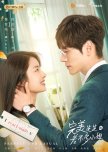
This review may contain spoilers
Not all “idol romcoms” are equal: Or “The kind are rewarded”
This was a show which had it all, good writing, direction, fantastic performance and visuals. Was it full of cliches and tropes, and seemed cut from the mold of other dramas with similar tropes? Both yes and no. While I have not watched others to be able to make any substantial comparison, just on its own merit this was a drama which can stand tall amongst others of its ilk.After a few rewatches, it became clear to me that more care, consideration and thought than what was common (for an idol romcom/pure romance) were given to the script/screenplay, and the whole production as a whole. There was a coherent theme/message, and recurring motifs, simplistic as they were. The small details mattered in this show.
It was also a showcase in how to go about achieving a wholesome, healthy, mature and loving relationship (for the leads). Communication, communication and communication. They took the time to talk with and reassure each other, tried to understand the other’s perspective, apologise when in the wrong etc. They did it often and habitually. It was especially stark when put against that of the other secondary couples.
There was not much unnecessary conflict, and any devices - i.e, misunderstandings or “love rivals” - for the development of the leads’ relationship were never utilised beyond their usefulness to the story. The respective dynamics were also a vehicle of growth for the leads. It was all very utilitarian. It could either be a plus or negative. In any case, I appreciated the straightforwardness. It resulted in a breezy, romantic and heartwarming drama experience.
While riding on the common tropes and cliches distinctive of its genre, it also tried to subvert some of them. It was a show “aware” of itself. It poked fun at the aggressive-CEO-tropes, and made fun of itself as a “mindless idol drama”. There was sarcastic and dry humour. There was also lovely usage of old movies to make its point across.
Having watched the ending and then returning to the first episode again, I was really struck by how coherent, cohesive and consistent the whole storyline was. The writing was truly solid.
Performance wise, suffice to say that WZM portrayed Prof Zhang impeccably, playing a staid, aloof and wooden character with much warmth, sensitivity and nuance. It’s impossible not to fall in love with Prof. Zhang. XRH was the perfect foil for him, playing Yun Shu naturally in all her adorable, sweet, effervescent and optimistic glory, subsequently blooming into a stronger and more mature character as the show progressed.
The secondary characters gave memorable performances too, and I especially loved ZLR’s portrayal of GZY. It was an organic and dynamic performance, giving the character a realism which I found particularly compelling.
In defense of the “Mary-Sue” female lead:
Was she absentminded, naive, too trusting and not particularly smart nor streetwise. Yes. Was she stupid. No.
Her being kind, generous and trusting might be looked upon by some as idiocy, but the show itself - via the character of the grandfather - clearly told us, it’s both her strength and weakness.
The show was not shy in letting us know that her helpfulness to others have garnered her opportunities which she would not have had just based on her academic or work skills.
Of course, as a viewer, what one thinks of the old-fashioned message itself is up to themselves, but the show was at least unapologetic in promoting the adage: “Nice girls finish first”, or that “compassion will be rewarded in kind.”
Conclusion:
For being a purely romance driven drama in its particular sub-genre, this was an example of fine writing, production and performance, as cliched and trope-y as it was. I feel fortunate in my encounter with this gem of a romcom. It’s undoubtedly a favourite now.
(All my thanks to the production/writing team, cast and crew).
Was this review helpful to you?
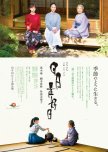
This review may contain spoilers
Beginner’s Guide to Japanese Tea Ceremony (aka The Omotesenke way of tea)
This was not a movie with much of a plot or things happening, except for one major incidence near the end. Still, one did not watch this movie for such mundane things as a storyline.The moments leading up to, and scenes of the practice of preparing a bowl of tea (Matcha, in this context) were the sum and whole of the story.
A story about a young woman adrift in the world, looking for her purpose in life.
This movie was not about her finding her meaning in life, but about how her constant companion, the practice of Sado, gave her important lessons about living life, in the moment, one whisk of tea at a time,
True to its title, it was a visual meditation on some Zen Buddhist philosophy as practiced within the framework of Sado ( 茶道, Way of Tea Ceremony), specifically the practice founded by Sen Rikyu a few hundred years ago. This movie perhaps more accurately depicted the teachings, style and aesthetics of the Omotesenke School (as evidenced by the wooden plaque at the gate of the Sensei’s house).
If one is a tea and pottery - or the Wabi Sabi aesthetic - enthusiast, this movie will be a feast for the eyes, heart and mind. Each frame and scene was beautifully captured to immerse one in the rusticity and simplicity of the Sado and Wabi aesthetics of a tea room. And through the glass bottom half of the sliding door, one was ensured arresting glimpses of an exquisite Japanese garden which emphasized the flow of, and the beauty of the changing seasons.
(I was also gawking at the beauty of the tea utensils throughout).
A comforting, slow and wonderfully calming movie with lovely performances.
If one is in the right frame of mind to be imparted some nuggets of wisdom about how to make “everyday a good day”, this would be a good movie.
Was this review helpful to you?

This review may contain spoilers
Shin Godzilla: How to Avoid Bungling Up a Crisis Of Epic Proportions
A human drama. Dialogue-heavy. Tedious. Full of long one-liners. No character development. Seemingly unnecessary scenes. Godzilla was like what, 30 mins of the movie?I loved it!
Godzilla itself was a true incarnation of a vengeful god, going beyond human understanding and evolutionary limits.
A movie about the idealized everyday superheroes of Japan. Principled, intelligent, capable, diligent and well-meaning politicians and bureaucrats (those loners, nerds, troublemakers, eccentrics etc) who are in it for the love of their work, Japan and its people. In another word, true public service, not the hypocritical-lip-service type.
What struck me most, from my childhood days of Superman and Ultraman, was the difference between the USAn and Japanese “superheroes”. The contrast between individual vs team effort. Nowhere was it more apparent than here, a movie about a monster born of nuclear radiation and weapons, that quintessential Japanese monster, Godzilla. Having watched the movie, it also became very clear to me why the Japanese loved it, while others had mixed/divided reactions.
This is not a movie for everyone. However, if political satire and crisis management are your interest, this movie would be a good match.
This was truly a Japanese made movie for the Japanese people; those who have had first hand experience with the 2011 Tohoku Disaster, the Fukushima Nuclear Reactor Meltdown event and other natural disasters in recent years, many of which were unprecedented in their scale and marks left. I don’t expect too many people who have lived through the 2011 Tsunami in north-eastern Japan will choose to watch this movie. The loss, grief and trauma are still felt, and the images much too real.
The satire of Japanese politics, bureaucracy and way-of-doing-things, was as entertaining as it was disheartening. The depictions of ineptness and inertia inherent in clunky bureaucracies and democracies, the inability to move beyond commonplace understanding and self-interests, made for both hilarity and resignation. Many of the dialogues made me laugh, and I still have to chuckle whenever I recalled them. It was dry and dark humour at some of their best. Peppered with commentaries about Japanese politics (and the USA role in it) and a smattering of global relations, it was a very realistic movie in many aspects. Themes about ideals and reality were threaded throughout. Lots of scientific jargon too.
Shin-Godzilla was not your garden-variety Kaiju/monster movie (not that I have watched many, this was my first Godzilla movie after all, and even the interest was stoked only because Takahashi Issei was in it, but I don’t think most monster movies were made this way), choked full as it was with political dialogues, bureaucratic maneuvering and crisis/disaster management, it was at its heart, a cautionary tale of human hubris and folly, the human spirit and the triumph of team effort and cooperation (as illusionary and momentary as it was, given the ominous ending).
Those were some of the reasons I found the movie fascinatingly good. The characters certainly captured both the heart and imagination as well. Undoubtedly, a movie well-worth the time spent on it, even with its flaws.
Highlights:
The female characters. They might be a small minority here, but the few who appeared were all strong, competent and oh-so-fantastic, even the “annoyingly-bratty-I-understood-her-Japanese-better than-her-English” Japanese-American special envoy. The character of the Defense Minister was also excellent. (I wish I could say the same for the previous real life female Japanese Defense Minister. I cringed every time she appeared on the news).
The main team members of the “Major Disaster/Crisis Management Task-Force”. Their introduction alone was a wonder to watch. Comical.
The character of Ogashira Hiromi stole the scene the moment she appeared; plain-faced, composed, backbone ramrod-straight, eyes glued to the video of an unknown creature on the computer screen while spewing rapid fire statements and theories on what she was observing, she was simply amazing. Cool, collected, ultra-intelligent and competent, she was always right. Yet, no one ever apologized when they dismissed her opinions, only to be proven wrong the next minute when what she had just stated proved true. (Don’t you just loved it when a woman is always right? I did, at least...)
And here comes my next favourite character, Yasuda Tatsuhiko. The only one to apologize to Ogashira when her theory proved accurate. He had previously countered her theory as absurd, but when she was proven correct, he did the right thing - rare too - and apologized, publicly. It was such a surprise and joy to watch (and an interaction to launch a thousand ships). It was certainly no puzzle why both characters were so popular; characterizations and acting were superb.
The main protagonist - if there was anyone fitting that description, it would be him - Yaguchi Rando. A third generation politician, he was one of the many deputy cabinet secretaries dotting the cabinet. Principled and straightforward, he was both earnest and idealistic, the type of politician you wished really existed. (I am sure these people exist, just not at the highest level...)
The interim Prime Minister. The veteran actor was compelling in both his presence and acting. His helpless resignation as to his role in an interim government facing imminent nuclear bombing and loss was poignantly bitter to behold.
The idea that no matter how horrifying and destructive Godzilla was, humans are worse. (Certainly no argument with this conclusion).
The impressive cast and numerous cameos. I could only count on one hand the names which I do know of, yet there were more than 300 actors, and while I do not know of their names, many were certainly familiar faces.
The wonderful soundtrack. I have no direct experience with any of the Godzilla franchise, but perhaps I have heard of the music here and there before, I have no idea. No matter, the music utilized here felt very old-school, and yet, refreshingly relevant. (The type of soundtrack I imagined the first iconic and other older movies would have incorporated into their movies).
The destruction of Tokyo. Chilling and terrifying.
(The scenes of the attempts at bringing down Godzilla with trains reminded me of the times I have seen the mock play of boys ramming their toy trains together or into a figurine/s. It was beyond funny).
Was this review helpful to you?
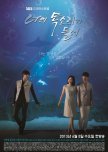
However, if this drama is one that could weave its magic for you, it would be a gem not easily forgotten, as it was for me. I held off watching this drama for years even although it was considered by some to be the ultimate in Noona romance - a favourite trope of mine - just because I could not stand looking at Lee Jong Seok and not a fan of Yoon Sang Hyun either.
However, Lee Bo Young and Lee Da Hee captivated me, so after coming off from another disappointing drama, I opted to plunge into this classic.
Story:
As a wannabe legal and courtroom drama, it might come off sorely lacking in many aspects, and many-a-times laughable - but with the many miscarriages-of-justice in real life at the back of my mind - I could not fault the show’s at times wide-eyes idealism when it comes to law and its principles (and I was reminded by a different review that Korean law would be very different from laws in other countries, so bear that in mind when we compare the procedural here with what we gleaned from UK/US shows, which were not always accurate either).
At the heart of this show was its sincere believe in the inviolable notions of truth and justice, a theme threaded throughout, as were other more spiritually illuminating lessons, peppered across the the storyline, which in actuality were catalysts for and vehicles of learning and growth for the characters. I also thoroughly appreciated the beats of comedy dotting the story, which had me chuckling each and every time, as ridiculous as they could be sometimes.
The strength of this drama was not its plot - which was overall quite simplistic and straightforward - but its ability to weave in the disparate bits and pieces of each sub-story to build towards a momentum highlighting the relationships and growth of each of the main/secondary characters, while delivering heartfelt messages, a feat in my estimation.The pacing was also gold, with not many sub plots leading us on a merry chase, as most were resolved within an episode or two at most, which meant not too many unnecessary fillers. Even the extensions were put to good use, fleshing out more of the secondary characters and providing skinships for our main OTP.
Characters/Cast:
The drama excelled in its characters and the development arcs for each, whether they were the leads or seconds, even the minor and villainous characters. Solidly competent acting backed up each, though I was wholly impressed by Jung Woong-In (as Min Joon-Gook) and Kim Hae Sook (Hye-Seong’s mother, Eo Choon-Sim), top notch veteran actors who stole the show even with the little screen time they had.
Lee Jong Seok and Yoon Sang Hyun mollified me with the actings chops they brought to their roles, and made their characters wonderfully lovable and engaging. Still, I had to keep myself from covering LJS’s face nearly the whole time I was watching the drama. I got used to his visuals just as the drama ended and rewatched the series for the ‘love story’ afters, since that was after all the original reason for which I watched this drama (a first for me, to rewatch just after completing a drama, and generally not fond of rewatching except for particular scenes).
Lee Bo Young and Lee Da Hee, while not really wowing me with their acting, did so excellently in the roles they were given that they embodied Jang Hye-Seong and Seo Do-Yeon for me, both of whom were amazing female characters I adore.
Lee Bo Young, with her elegant beauty, had my eyes glued to the screen all the time with her wonderful interpretation of Hye-Seong.
Romance:
I won’t actually categorize the romantic relationship for the main pairing here as a romance, as I didn’t feel any romantic vibes while watching. The progress in the relationship was executed organically in a somewhat low-key manner, excepting the constant comfortable domesticity and skinship. What we undoubtedly have, however, was a love story in the true essence of such.
The beginning of the love story began with a courageous choice, and the progress, marked by loyalty, determination, familial love, sacrificial love, comfort, caring, courage, honesty, trust and acceptance. The dynamics of their relationship were such that each spurred the growth and maturity of the other, nudging them to be better people by the end. After all that, why not a romantic and sexual bond too?
While the life-and-death situations in the show gave our couple the adrenaline to bond over, the reciprocated small gestures of care and love, as well as the honest communication shared, that cemented theirs as a relationship and love to stand the test of time and other ravages. (I never imagined that I would be getting a love story after my own heart in a drama, but colour me happily surprised).
Music/OST:
I did not find the tracks or music particularly appealing while I was watching the drama, but they grew to become favourites after the fact. The listening durability of the tracks were high, and am glad I stumbled upon some good singers and bands via the lovely OST.
Overall, am one of those who fell under the spell of IHYV, and felt extremely fortunate because of it. How often does a story and its messages pierce our heart and mind and do not let go even through the passage of time? Not often (in my case), and hence I treasure those moments when such a story comes into my life. This drama shot into my short list of Favourites after a long, long drought, and the emotional and intellectual resonance from it has been extremely satisfying, if nothing else. Truly a gem of a drama.
My rating is an effort to be more ‘objective’ about shows, and while they might be lower in relative to others, it is not a reflection of how I feel or think about the show. I love IHYV and it comes highly recommended, but it is not a 10 and I can’t in good conscience give it that even if my heart tells me otherwise.
It is also in acknowledgement that loving something and considering it “Daebak!” is very subjective, given the many people who could not get into or enjoy IHYV. The good thing is, though, that there are so many wonderful stories and dramas out there that there is one bound to appeal. Enjoy.
Was this review helpful to you?
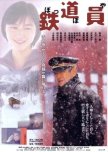
This review may contain spoilers
What is a lived life?
It is quite apparent the movie was adapted from a novel, and a well-known novel at that, given the simplicity of the plot.A story about one man’s principles and work ethic, his regrets and how his choices in life impacted on those dearest and nearest to him. A small, quiet, intimate and beautifully made film with subtle layers to its themes. That said, it was also very straightforward, as befitting a story with such subject matters.
The ending, as it was, did not come as a surprise as much as it was expected.
A movie you watch for the questions it brings to the table about what constitutes a life, that ever constant fact of life, change, and the struggles therein. There is no doubt why the novel it was based on was a modern classic. The themes touched on showed that clearly.
The film was not attempting to wow, and did not have any pretensions to such, and in that, I appreciated its honesty, just like the themes it wanted to convey to the audience. Simple yet thought provoking, and crucially, an emotional experience.
I would say this is a good film for its genre, if nothing remarkable. Worth a watch for an understanding of one aspect of the human condition. One with a Japanese flavour, poignant and evocative.
Was this review helpful to you?
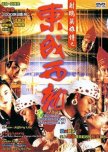
Martial Arts Parody on Crack
If you start this expecting a serious or even a simple comedy with martial arts element, the chances of one being disappointed will be quite high. This was parody, and had not one serious moment in the whole show, or any particularly coherent plot.That said, there was a basic plot about a princess attempting to save her kingdom from the queen (and her lover). This movie detailed her adventures in trying to seize the throne back from the usurper.
More than that, however, this was also a comedy of circumstances of familiar characters from Jin Yong’s (Louis Cha) classic martial arts novel, “Legend of the Eagle Shooting Heroes”, though one could be forgiven if no character seemed recognizable in this movie except for their names.
Populated by stars from the HK entertainment industry’s heyday (1980-90s), this show was worth watching just for that, if one is a fan.
This was crack parody of the best kind, and if one watches it without preconceived ideas and just let the physical and nonsensical comedy flow as they come, one is in for an entertaining show full of belly laughs.
Give it a try, if so inclined.
Was this review helpful to you?
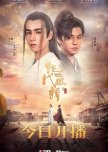
This review may contain spoilers
A fine adaptation of a classic
Story:Twins separated at birth due to a conspiracy, and their journey of discovery and growth will unfold towards a devastating end.
Characters:
The main characters’ arcs, relationships and trajectories of growth were written very well, in my opinion. Whether one will prefer or like a character more is a matter of preference, as I think writing and arc wise, none of the characters were shortchanged too much. Having a solid base of the original novel to derive from, and willing to be faithful to it had been beneficial.
Performance:
Performances by the veterans were solid. A bit of a mixed bag when it came to the younger actors. Personally, I thought some of the casts performed better than others. Still, in terms of character portrayals, nothing much was amiss, and each was executed brilliantly.
Pacing and subplots:
Pacing and action did pick up as the show progressed, but don’t expect this to be an action flick full of mind-numbing thrills. It is not. Expect dialogues and lots of expositions, as well as detours into other subplots and mini-stories, though all will be tied up with a neat bow by the end. The hallmark of a great WuXia-cum-mystery.
Cinematography:
Beauty and prettiness permeated the whole show, and it’s an entertaining romp amongst lofty architectures and sceneries (aided by copious amount of CGI), one worthy of our imaginary JiangHu. I also found the imageries to be more realistic and seamless than the ones I saw in Legend of the Condor Heroes (2017).
Choreography:
Quite blown away by the seamless action and elegance displayed in the martial art moves in this show. Most action scenes were amazing.
The main plot of this show was one already familiar to me, and I was finally willing to give it a try because I love Hua Wu Que as a character, and was highly interested in how they will develop him and his relationships, especially with Tie Xin Lan. The knowledge that this adaptation was relatively faithful to the source material was also a major factor. Even more of a HWQ and TXL fan now than before I started.
Jiang Xiao Yu, as in all adaptations, stood out.
This was a classic tale of “heroes vs villain”, less so a “good vs evil”, as both the heroes and villains exhibited various good and bad traits. What made one a villain and hero are also ideas one needs to ponder on. Spiritual lessons, if one is receptive, also abounded. What I love about WuXia has always been the fact that at its best, it adds to that debate and understanding. This adaptation, I think, is a worthy addition to the genre. I am just glad I loved it too.
Was this review helpful to you?

